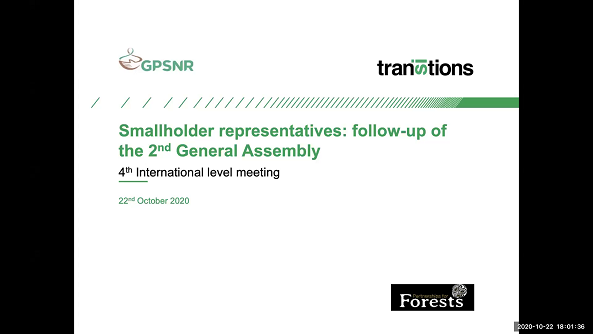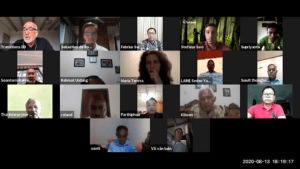Although it had been more than a month since the GPSNR smallholder members had met at the international level, they took their places in the online meeting with a sense of familiarity that was heartening to see.
We had come a long way since the first international call in late August. Since then, the second and third international calls had taken place, focusing on preparing the smallholders for the General Assembly. In the weeks after the General Assembly, the Country Champions helped to organise national-level calls for the smallholders to recap the results of the resolutions and Executive Committee (EC) elections, and to discuss topics of interest to be brought up during the fourth and final international call as part of the series.
The fourth international call was held in the evening of 22 October, and attended by smallholder members from all seven countries. The call began with an update from the three smallholder EC representatives on the EC calls that they had attended thus far. Overall, the representatives had positive takeaways from the EC meetings, despite some language barriers remaining.
Next, the Co-Chairs of GPSNR’s various Working Groups joined the call in order to introduce each of their Working Groups and briefly explain key focuses and projects. This generated some questions around the policy equivalent for smallholder members, as well as GPSNR’s approach towards traceability for smallholder producers. Several smallholder members also expressed interest in participating in these Working Groups. The Secretariat will get in touch with all smallholders members to facilitate their inclusion in the platform’s Working Groups.
The final half hour of the call was dedicated to a discussion on smallholder community dynamics and how to manage the exchange of information within the category while understanding the geographical and linguistic differences amongst the clusters of smallholder members.
This concludes the series of preparatory calls designed by the Smallholder Representation Working Group to prepare smallholders for their first GPSNR General Assembly and outcomes. But as the saying goes: when one door closes, another opens. And in this case, the door has opened for the newest membership category to define the parameters and mechanisms of their involvement within the platform, with the support of the Secretariat and fellow GPSNR members.






